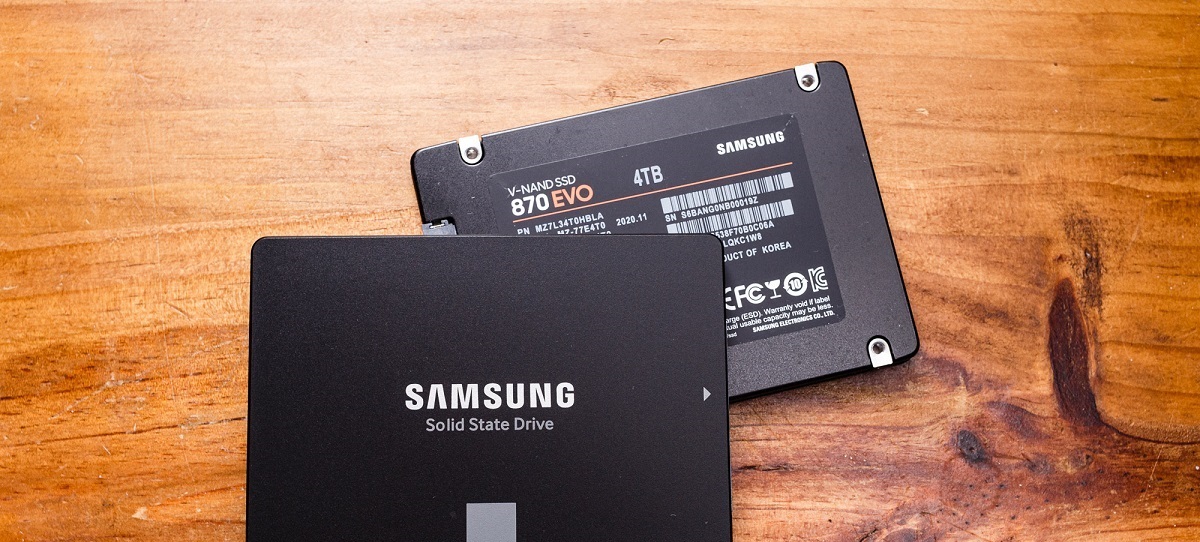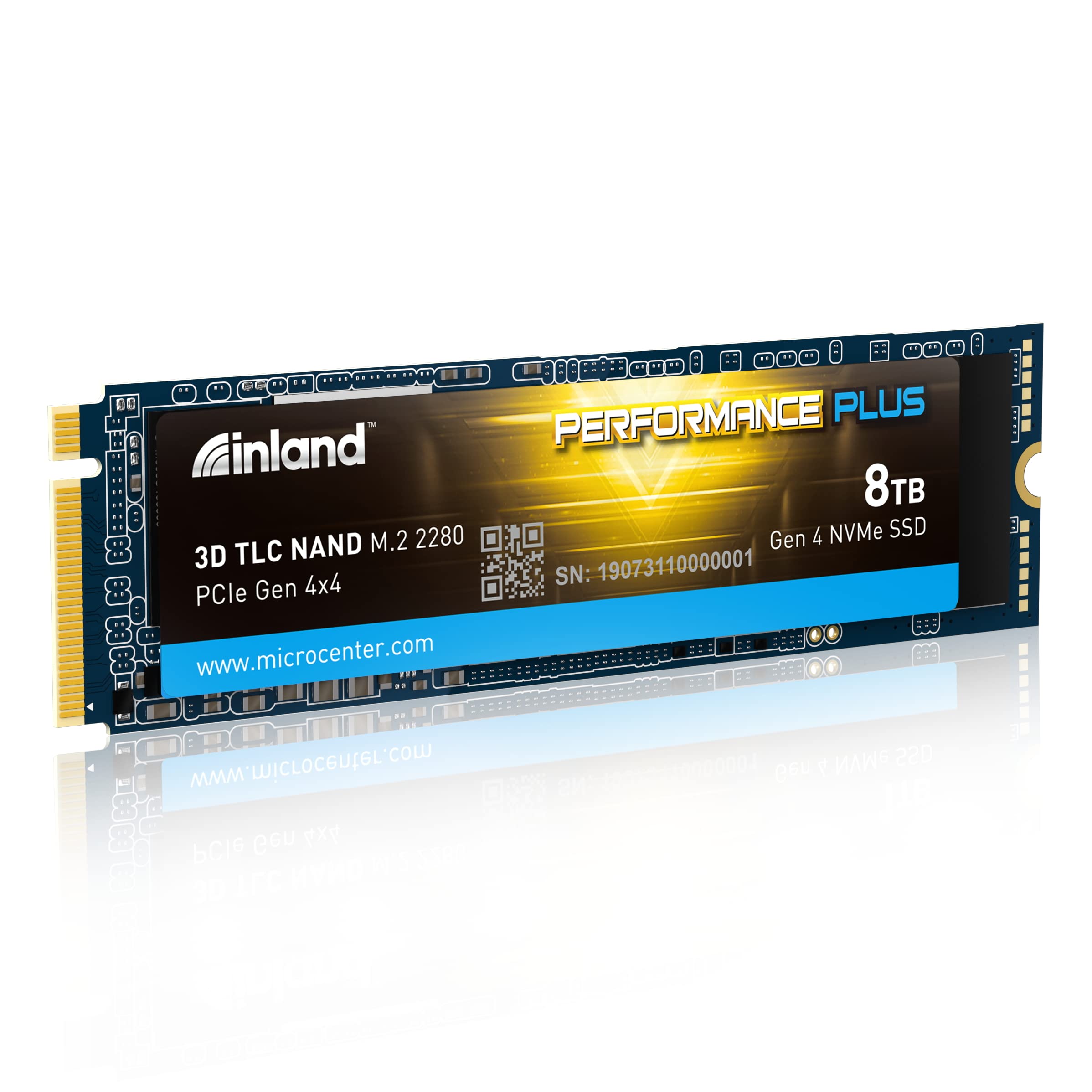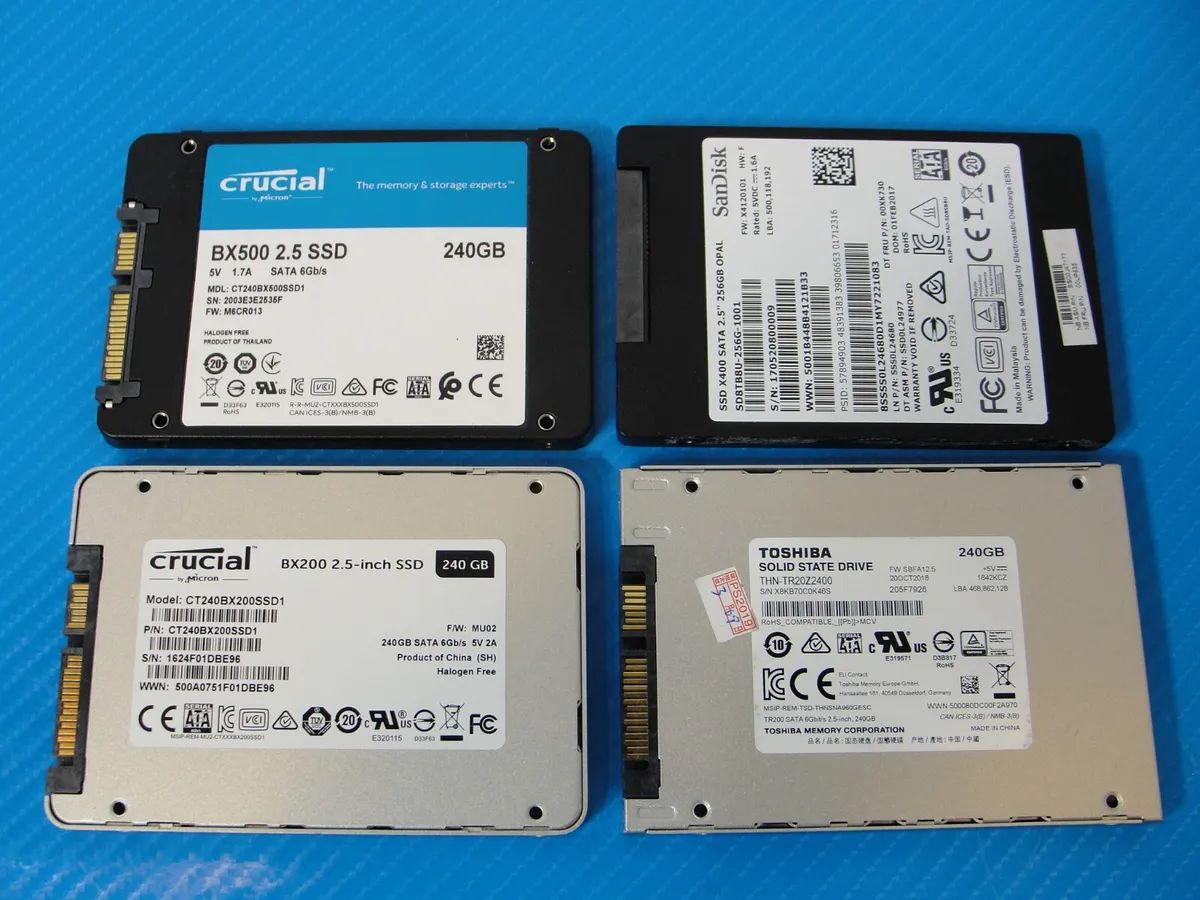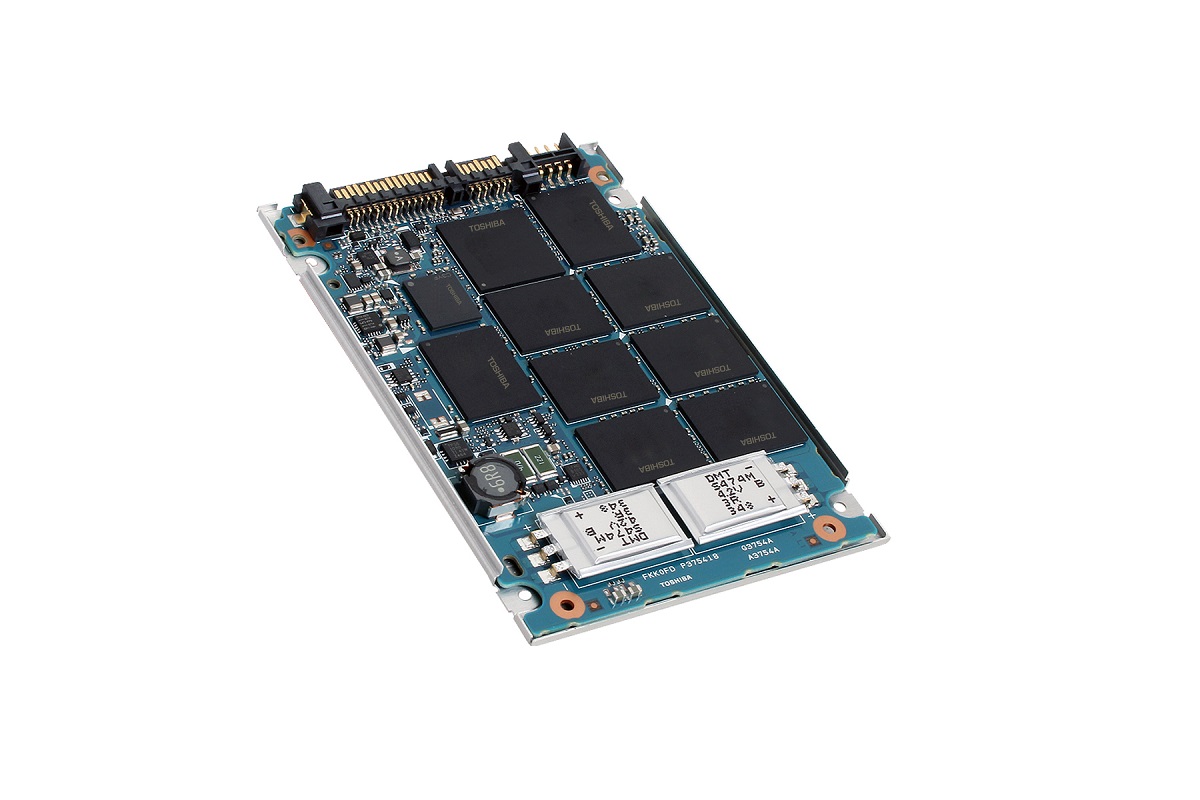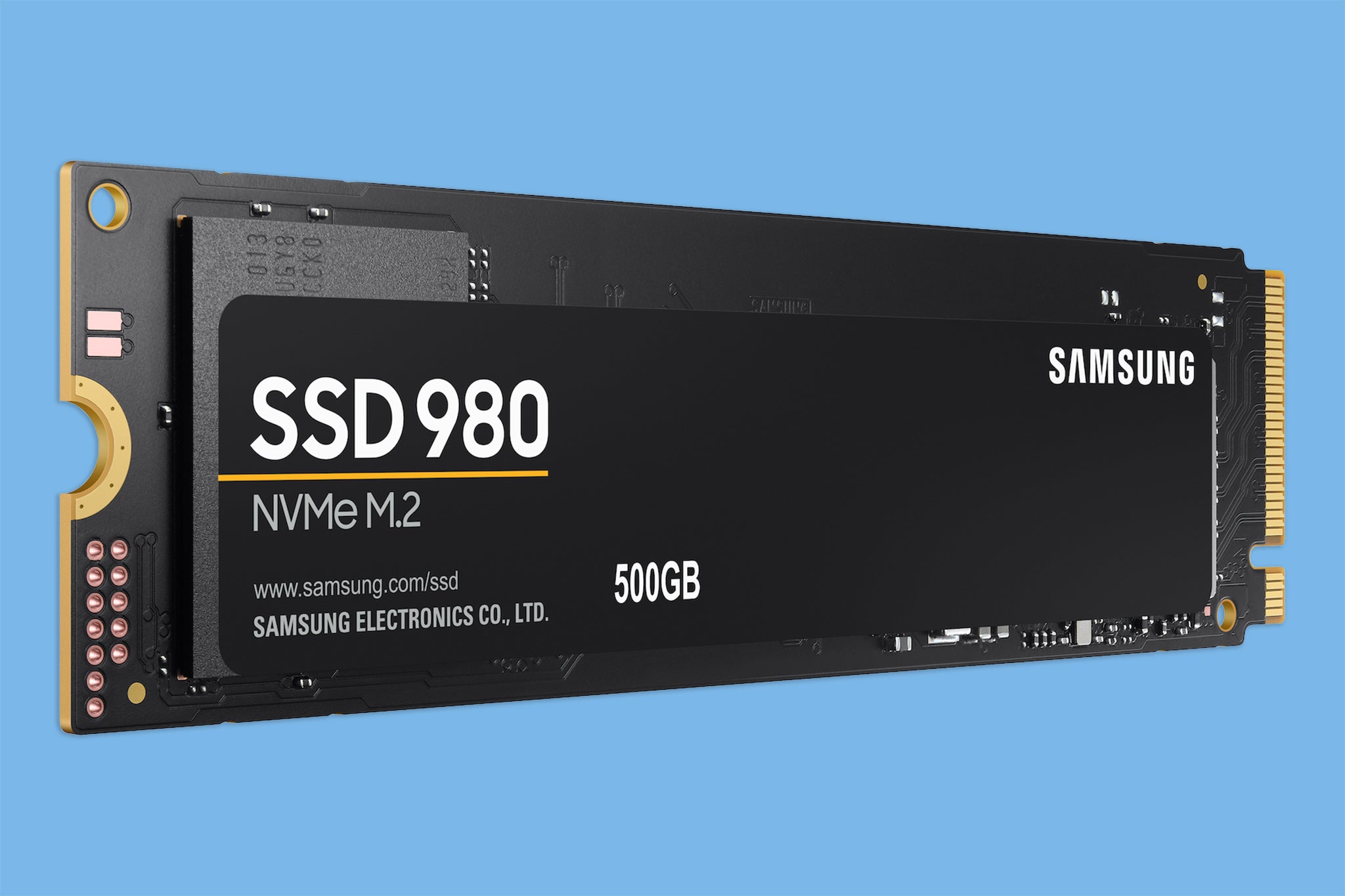Introduction
Welcome to the world of solid-state drives (SSDs) where speed, reliability, and efficiency are paramount. As technology advances, so does the need for faster and more efficient storage solutions. Enter Samsung, a leading manufacturer of SSDs that has revolutionized the industry with their cutting-edge technologies and innovative features.
One such feature that sets Samsung SSDs apart is over-provisioning. You may have come across this term while researching SSDs, but what exactly is over-provisioning, and why is it important? In this article, we will explore the concept of over-provisioning in Samsung solid-state drives and delve into the benefits and techniques employed by Samsung to optimize their SSDs’ performance.
Before we dive into the specifics, it’s essential to understand the basic principles of SSDs. Unlike traditional hard disk drives (HDDs) that use spinning disks to store data, SSDs rely on flash memory technology. This allows for faster read and write speeds, improved durability, and lower power consumption.
Over-provisioning, in simple terms, is the reserved space on an SSD that is not accessible to the user. It is a deliberate allocation of extra capacity beyond what is advertised. While this may seem counterintuitive, over-provisioning plays a crucial role in enhancing the performance and longevity of the SSD.
By setting aside a portion of the drive’s capacity as over-provisioned space, Samsung can perform essential tasks such as wear-leveling, garbage collection, and error correction more effectively. These processes help to ensure consistent performance, prolong the lifespan of the SSD, and maintain data integrity.
Now that we have a basic understanding of what over-provisioning is, let’s explore why it is particularly important in Samsung solid-state drives and how it benefits users in various ways.
What is Over-Provisioning?
Over-provisioning refers to the practice of setting aside a portion of an SSD’s total capacity for internal use, rather than making it available for user data storage. This reserved space is dedicated to performing essential background operations that optimize the performance and reliability of the SSD.
SSDs inherently require some level of over-provisioning to function optimally. This is because they operate differently from traditional hard drives and can benefit from additional space for wear-leveling, garbage collection, and error correction.
Wear-leveling is a process in which data is evenly distributed across the physical cells of the SSD. As data is written and erased, certain cells may weaken or wear out faster than others. By over-provisioning, Samsung ensures that there is ample spare capacity available to distribute data evenly, preventing premature wear and extending the lifespan of the drive.
Garbage collection is another critical process that occurs in the background. As data is written and deleted on the SSD, there may be instances where cells are not completely cleared. These cells are referred to as “garbage.” The over-provisioned space allows the SSD to effectively collect and erase this garbage, maintaining optimal performance and preventing unnecessary slowdowns.
Error correction is essential for maintaining data integrity. Over-provisioning provides room for error correction algorithms to function effectively. These algorithms can detect and correct errors that may occur during data transmission and storage, ensuring that the SSD maintains a high level of reliability and accuracy.
In addition to these internal functions, over-provisioning also helps to mitigate performance degradation over time. As an SSD fills up with user data, its performance can decrease. However, by allocating a portion of the drive as over-provisioned space, Samsung ensures that there is always some free capacity available for maintaining optimal performance levels.
It is important to note that not all SSDs have the same level of over-provisioning. The amount of reserved space varies depending on the SSD model and manufacturer. Samsung, known for its commitment to delivering top-notch performance, incorporates generous amounts of over-provisioning in their SSDs to ensure maximum efficiency and longevity.
In the following sections, we will explore the specific benefits of over-provisioning in Samsung SSDs and how Samsung implements this feature in their drives.
Why is Over-Provisioning Important in Samsung Solid State Drives?
Over-provisioning is of paramount importance in Samsung solid-state drives (SSDs) for several key reasons. It plays a critical role in enhancing performance, improving endurance, and maintaining reliability. Let’s explore why over-provisioning is important in Samsung SSDs:
- Performance Optimization: By setting aside a portion of the SSD’s capacity for over-provisioning, Samsung can optimize performance by allowing the drive to operate with a higher level of efficiency. The extra space enables the SSD to perform wear-leveling, garbage collection, and other background processes without impacting the drive’s overall performance. This results in faster data access, improved write speeds, and reduced latency, providing users with a smooth and responsive computing experience.
- Endurance Enhancement: Over-provisioning is crucial for enhancing the endurance of the SSD. The wear-leveling process, made possible by the reserved space, ensures that data is distributed evenly across the SSD’s cells. This prevents specific cells from enduring excessive writes, leading to a longer lifespan for the drive. Additionally, by allocating extra capacity for garbage collection, the SSD can maintain optimal performance levels over an extended period, as it can efficiently clear out “garbage” data that can cause performance degradation.
- Data Integrity and Reliability: Over-provisioning is essential for maintaining data integrity and reliability. The reserved space allows the SSD to perform error correction and detection mechanisms effectively. By having additional capacity dedicated to error correction algorithms, Samsung SSDs can detect and rectify errors that can occur during data transmission or storage. This ensures that data remains accurate and reliable, minimizing the risk of data corruption or loss.
- Consistency in Performance: As an SSD fills up with user data, its performance can gradually degrade. However, with over-provisioning, Samsung ensures that there is always some free capacity available, allowing the SSD to maintain consistent performance levels even as the drive reaches high levels of utilization. This provides users with a reliable and consistent computing experience, whether they are working with small files or large-scale applications.
- Future-Proofing: Over-provisioning also offers a level of future-proofing for Samsung SSDs. As technology advances and SSDs become capable of handling larger workloads, the extra capacity provided by over-provisioning ensures that the SSD can continue to operate optimally, even as workload demands increase over time.
By incorporating over-provisioning into their SSDs, Samsung not only prioritizes performance and endurance but also provides users with a reliable and long-lasting storage solution. The next section will explore the specific benefits that users can enjoy as a result of Samsung’s over-provisioning techniques.
Benefits of Over-Provisioning in Samsung Solid State Drives
Samsung’s implementation of over-provisioning in their solid-state drives (SSDs) brings a myriad of benefits to users. By reserving a portion of the drive’s capacity for internal operations, Samsung maximizes performance, endurance, and reliability. Here are some key advantages of over-provisioning in Samsung SSDs:
- Enhanced Performance: Over-provisioning allows Samsung SSDs to deliver exceptional performance. By allocating extra space for wear-leveling and garbage collection, the drives can efficiently distribute data and optimize write performance. This results in reduced latency, faster data access, and improved overall system responsiveness. Users can experience smoother multitasking, quicker application launches, and shorter boot times.
- Improved Endurance: Over-provisioning significantly enhances the endurance of Samsung SSDs. With reserved space for wear-leveling, the drives can evenly distribute data across cells, preventing specific cells from being subject to excessive wear. This prolongs the lifespan of the drive and ensures the drive remains reliable even with intense workloads. Users can expect their Samsung SSDs to handle heavy workloads and frequent write operations without experiencing premature failure or degradation in performance.
- Increased Write Efficiency: Samsung’s over-provisioning techniques improve write efficiency by minimizing write amplification. With additional space available for garbage collection, the SSD can effectively clear out and reclaim unused cells, reducing the number of write operations required. This results in improved overall write performance and better utilization of the drive’s available capacity.
- Optimized Storage Space: Over-provisioning also benefits users by optimizing usable storage capacity. While a portion of the drive’s capacity is reserved for internal operations, the remaining capacity remains accessible for user data storage. Samsung SSDs employ efficient algorithms to manage over-provisioned space, ensuring a seamless user experience with ample room for data storage.
- Reliable Data Integrity: By dedicating space for error correction algorithms, over-provisioning enhances the SSD’s ability to maintain data integrity. Samsung SSDs perform advanced error correction mechanisms to detect and rectify errors that may occur during data transmission or storage. This ensures that user data remains accurate and reliable, minimizing the risk of data corruption and loss.
- Long-Term Performance Consistency: Over-provisioning helps Samsung SSDs maintain consistent performance even as the drive nears full capacity. By having free space for background processes, the drive can sustain optimal performance levels despite increased utilization. Users can rely on their Samsung SSDs for consistently fast and reliable performance, regardless of the amount of data stored on the drive.
With over-provisioning, Samsung SSDs go above and beyond to deliver exceptional performance, endurance, and reliability. By optimizing write efficiency, maximizing storage capacity, and ensuring data integrity, Samsung solid-state drives provide users with a powerful and dependable storage solution that meets the demands of modern computing.
How Does Samsung Implement Over-Provisioning in their Solid State Drives?
Samsung implements over-provisioning in their solid-state drives (SSDs) using a combination of software and firmware techniques. These methods ensure that the reserved space is effectively utilized for optimizing performance and durability. Let’s take a closer look at how Samsung implements over-provisioning:
Allocation of Reserved Space: Samsung allocates a portion of the SSD’s total capacity as reserved space for over-provisioning. This space is not accessible to the user and is solely dedicated to background operations that enhance performance and endurance.
Advanced Firmware Algorithms: Samsung utilizes sophisticated firmware algorithms to manage over-provisioned space. The firmware determines how much capacity is allocated to over-provisioning and optimizes the distribution of data across the drive. This ensures that wear-leveling, garbage collection, and other vital operations are carried out efficiently.
Dynamic Over-Provisioning: Samsung SSDs use dynamic over-provisioning, which allows the drive to adjust the amount of reserved space based on usage patterns and workload demands. This intelligent allocation of over-provisioned space ensures that the SSD can adapt to varying workloads and maintain optimal performance levels.
Trim and Garbage Collection: Samsung SSDs utilize the Trim command and efficient garbage collection techniques to reclaim space within the over-provisioned region. The Trim command provides the SSD with information about deleted or unused data, allowing the drive to mark those blocks as available for future use. Garbage collection algorithms then efficiently clear out and consolidate unused cells, optimizing the utilization of the over-provisioned space.
Wear-Leveling: Samsung SSDs employ wear-leveling algorithms to evenly distribute data across the drive’s cells. This helps prevent specific cells from wearing out faster than others, enhancing the drive’s longevity and ensuring consistent performance over time. By reserving additional capacity for wear-leveling operations, Samsung SSDs can achieve more effective and efficient wear management.
Error Correction and Data Integrity: Samsung SSDs leverage error correction algorithms within the over-provisioned space to detect and correct errors that may occur during data transmission or storage. Advanced error correction mechanisms ensure data integrity and maintain a high level of reliability, safeguarding user data against potential errors or corruption.
Optimized Firmware Updates: Samsung provides firmware updates for their SSDs, which often include performance enhancements and optimizations for over-provisioning. These updates ensure that the SSD continues to deliver optimal performance and take advantage of the latest advancements in over-provisioning technology.
Through a combination of firmware algorithms, dynamic allocation, efficient data management, and error correction mechanisms, Samsung effectively implements over-provisioning in their SSDs. This implementation ensures that Samsung SSDs deliver exceptional performance, endurance, and reliability for a wide range of computing applications.
Over-Provisioning Techniques Used by Samsung
Samsung employs several advanced techniques to implement over-provisioning in their solid-state drives (SSDs). These techniques are designed to optimize performance, enhance endurance, and ensure data reliability. Let’s delve into the over-provisioning techniques used by Samsung:
- Static Over-Provisioning: Samsung allocates a fixed amount of space as reserved over-provisioned capacity. This fixed amount is predetermined during the manufacturing process and ensures that a consistent amount of space is dedicated to background operations, such as wear-leveling and garbage collection.
- Dynamic Over-Provisioning: Samsung employs dynamic over-provisioning, which dynamically adjusts the amount of reserved space based on usage patterns and drive health. This adaptive technique ensures that the available over-provisioned space is optimally utilized, providing the necessary flexibility to manage changing workloads over time.
- User-Configurable Over-Provisioning: Some Samsung SSD models offer the capability for users to manually configure the amount of over-provisioned space. This allows advanced users to fine-tune the balance between performance and capacity according to their specific needs, providing a customizable solution.
- Load Balancing: Samsung SSDs employ load balancing techniques to evenly distribute the workload across the drive. By intelligently managing data placement, the drives can avoid hotspots and ensure that no specific cells or regions of the SSD experience excessive wear. This load balancing technique complements the over-provisioning strategy for optimal performance and endurance.
- Power Loss Protection: Samsung incorporates power loss protection mechanisms in their SSDs to safeguard data during unexpected power outages. Over-provisioning plays a role in ensuring that data integrity is preserved by providing the necessary reserved space to complete any ongoing background operations and maintain data consistency in case of sudden power loss.
- Advanced Firmware Features: Samsung SSDs are equipped with advanced firmware that includes features specifically designed to leverage the benefits of over-provisioning. These firmware features work in conjunction with over-provisioned space to optimize performance, enhance durability, and perform background tasks seamlessly.
By employing a combination of static and dynamic over-provisioning, user-configurable options, load balancing techniques, power loss protection, and advanced firmware features, Samsung ensures that their SSDs deliver outstanding performance, endurance, and reliability. These over-provisioning techniques are a testament to Samsung’s commitment to providing high-quality storage solutions that meet the diverse needs of users across various applications and industries.
Overcoming Over-Provisioning Challenges
While over-provisioning brings numerous benefits to solid-state drives (SSDs), there are also challenges associated with its implementation. However, Samsung has implemented strategies to overcome these challenges and ensure the optimal performance and reliability of their SSDs. Let’s explore how Samsung tackles the challenges related to over-provisioning:
- Optimal Space Allocation: One of the challenges with over-provisioning is determining the optimal amount of reserved space. Too little over-provisioning may limit the effectiveness of background operations, while too much may result in wasted capacity. Samsung leverages advanced firmware algorithms to dynamically adjust the space allocation based on workload and usage patterns, ensuring optimal utilization.
- Wear-Leveling Efficiency: Wear-leveling is crucial for distributing write operations evenly across the SSD’s cells. However, excessive wear on certain cells can still occur over time, impacting overall endurance. To mitigate this challenge, Samsung SSDs employ intelligent load balancing techniques. This ensures that write operations are distributed evenly, preventing specific cells from wearing out prematurely and maintaining a high level of endurance.
- Garbage Collection Optimization: Effective garbage collection is essential for maintaining SSD performance. However, performing garbage collection in an efficient manner can be challenging due to the random nature of data deletion and storage. Samsung SSDs utilize advanced garbage collection algorithms and Trim commands to optimize the process, ensuring that unused blocks are efficiently erased and free space is reclaimed within the drive’s over-provisioned region.
- Balancing Performance and Capacity: A trade-off between performance and capacity is another challenge in over-provisioning. While over-provisioning enhances performance and endurance, it reduces the overall usable capacity of the drive. Samsung addresses this challenge by offering user-configurable over-provisioning options on select SSD models. This empowers users to strike the right balance between performance and capacity based on their specific needs and requirements.
- Evolving Workloads: As workloads evolve and become more demanding, maintaining consistent performance can be a challenge. Samsung tackles this challenge by incorporating dynamic over-provisioning techniques. With the ability to adjust the amount of reserved space based on usage patterns and workload demands, Samsung SSDs can adapt to changing workloads and sustain high performance levels over time.
Through firmware advancements, load balancing techniques, efficient garbage collection, user-configurable options, and dynamic over-provisioning, Samsung overcomes the challenges associated with over-provisioning. These strategies allow Samsung SSDs to deliver exceptional performance, endurance, and reliability, meeting the demands of today’s data-intensive applications while addressing future requirements.
Conclusion
Over-provisioning is a vital feature in Samsung solid-state drives (SSDs) that plays a significant role in optimizing performance, enhancing endurance, and maintaining data reliability. By reserving a portion of the drive’s capacity for internal operations, Samsung maximizes the efficiency and longevity of their SSDs.
We have explored the concept of over-provisioning and its importance in Samsung SSDs. Over-provisioning allows for essential background processes such as wear-leveling, garbage collection, and error correction. These processes optimize performance, improve endurance, and ensure data integrity.
Throughout this article, we have discussed the benefits of over-provisioning in Samsung SSDs, including enhanced performance, improved endurance, increased write efficiency, optimized storage space, reliable data integrity, and long-term performance consistency. Samsung’s implementation of over-provisioning techniques, such as static and dynamic allocation, load balancing, and user-configurable options, address the challenges associated with over-provisioning, ensuring optimal performance and efficiency.
Samsung’s commitment to innovation and advancements in firmware algorithms, garbage collection, wear-leveling, and power loss protection further contribute to the success of over-provisioning in their SSDs. By adapting to evolving workloads and delivering customizable solutions, Samsung SSDs are equipped to meet the diverse needs of users across various industries and applications.
In conclusion, over-provisioning is a fundamental aspect of Samsung SSDs that enables exceptional performance, endurance, and reliability. With their unwavering focus on optimizing performance through dynamic allocation, efficient data management, and advanced firmware features, Samsung continues to lead the way in providing high-quality SSDs that meet the demands of the ever-evolving digital world.







